
The logistics industry is in the midst of a profound transformation, driven by digital technology and innovation. To stay competitive and thrive in this evolving landscape, companies need to adapt and embrace digital transformation. In this comprehensive guide, we will explore the key steps and strategies for achieving success in the logistics industry through digital transformation.
The Digital Revolution in Logistics
The logistics industry has traditionally been associated with physical assets like trucks, warehouses, and shipping containers. However, in today’s fast-paced and interconnected world, the success of logistics companies is increasingly dependent on digital solutions.
The Role of Digital Transformation
Digital transformation is more than just adopting new software; it’s a shift in mindset. It involves integrating cutting-edge technology and rethinking existing processes to propel the industry forward. Leveraging digital tools facilitates real-time tracking, precise data analytics, predictive insights, and seamless communication channels, ensuring a smoother, more responsive logistics ecosystem.
Advantages of Digital Transformation
The benefits of embracing digital transformation are abundant. By incorporating innovative technology and software solutions, logistics companies can:
Streamlining operations and automating tasks significantly improves efficiency, reducing manual errors and time wastage.
Real-time tracking and communication facilitate better customer service, providing transparency and reliability.
Data-driven insights enable better resource allocation and forecasting, ensuring cost-effectiveness.
The capacity to quickly adjust to market shifts is vital. Digital transformation provides the agility needed to respond to evolving demands.
Overcoming Challenges
While the advantages are evident, implementing digital transformation comes with its set of challenges. It involves integrating new systems, retraining employees, and ensuring a secure transition. However, navigating these challenges can lead to a transformative journey that reaps significant rewards in the long run.
The Roadmap to Digital Transformation
Digital transformation is not a one-size-fits-all process, and it requires careful planning and execution. Here’s a roadmap to navigate your journey :
Begin by identifying your company’s specific goals for digital transformation. Whether it’s improving operational efficiency, reducing costs, or enhancing customer experience, having clear objectives is crucial.
Evaluate your existing technology infrastructure and identify gaps. Determine which areas need improvement and which systems can be integrated or replaced with more advanced solutions.
Choose digital tools and platforms that align with your goals. These could include transportation management systems (TMS), warehouse management systems (WMS), Freight Forwarding Software , and IoT devices for real-time monitoring.
Data is the backbone of digital transformation. Collect and analyze data to gain insights into your operations, make informed decisions, and uncover opportunities for improvement.
Automation has the capability to enhance efficiency by simplifying repetitive tasks, minimizing errors, and streamlining operations. Implement automation where it makes sense, such as in order processing, inventory management, and route optimization.
Equip your team with the necessary skills to navigate the digital landscape. Invest in training and hire experts who can drive your digital transformation strategy.
As you embrace digital solutions, prioritize cybersecurity. Protecting sensitive data and ensuring the integrity of your systems is paramount.
Digital transformation is an ongoing process. Continuously monitor the performance of your digital systems and be prepared to adapt to changing market conditions and technological advancements.
The Future of Logistics
As the logistics industry continues to evolve, those who successfully navigate the path of digital transformation will be best positioned for success. Embracing digital technology not only enhances operational efficiency but also opens doors to new opportunities and revenue streams.
In conclusion, digital transformation is not an option; it’s a necessity for logistics companies that aspire to thrive in an increasingly competitive and digital-driven world. By setting clear goals, adopting the right technology, and fostering a culture of innovation, logistics companies can chart a course to success in the digital age.
Remember, the key to success in the logistics industry lies in your ability to adapt, innovate, and stay ahead of the digital curve. So, let’s set sail on the digital transformation journey and navigate our way to a brighter, more efficient future in logistics.
Yes! The Reports can export to PDF format, Excel, Word Format etc.
Yes! B/L print outs can be taken in a Single click
Freight forwarders provide their customers with a range of services including consolidation, documentation, freight payment and customs clearance. The service is offered by freight forwarders who serve as an intermediary between the shipper and the forwarder’s transportation network.
The world is calling, but the struggle with complex international exports can be overwhelming. Shipping software allows you to:
Optimize systems: Automate operations, expand productivity, and increase accuracy.
To achieve global ordering: Track inventory in real time; compatibility with global networks; and make decisions based on data.
Enhanced customer service: Respond quickly, provide clear information, and rise above language issues.
Choose the right freight forwarding software to open your company to global growth.
Choosing the right freight software is like choosing your superhero gear – it empowers you to handle complex logistics and soar to new heights. Here are some basics to ensure your software is a real winner:
Effortless Shipping: Imagine recording, tracking and reporting on shipments with a few clicks. Your software may simplify these processes, freeing you up to focus on bigger things.
Simplified bookkeeping: Creating accurate quotes, invoices, and report cards is unlike paper invoices. Look for software that simplifies paperwork and keeps everything organized.
Strong customer relationships: A robust CRM system in your software allows you to manage customer interactions, send personalized communications, and foster strong relationships – the foundation of any successful business.
Data push decisions: Your software program can be your own record analyzer. Look for features that provide insightful analysis of overall performance, identify trends, and empower your company to make informed choices.
Easy conversation: Does your software play well with others? Integrating accounting, CRM and visit management systems improves information flow and eliminates accounting silos – a huge win for efficiency
By installing those essential components, you equip your logistics with the software muscle needed to overcome any system challenges and achieve breakthrough success
A quantity of steps are worried in integrating and employing freight forwarding software program (CargoNet) inside your commercial enterprise, these encompass:
Evaluation and Planning: Assess the existing freight forwarding processes in your organisation and discover regions to be stepped forward. Establish your precise requirements and dreams for imposing CargoNet software program application. Develop a plan of implementation along with timeframes, sources and key individuals.
Customization and Configuration: Collaborate with our implementation group in order to personalize the software program in line with the workflows or processes used by your very own organization. Set up configurations, user privileges, in addition to connections to other systems employed across your business enterprise.
Data Migration: Prepare your present day Freight Forwarding statistics for migration into CargoNet. Make certain that statistics is accurate and sound by way of purging it off old data even as formatting it efficaciously



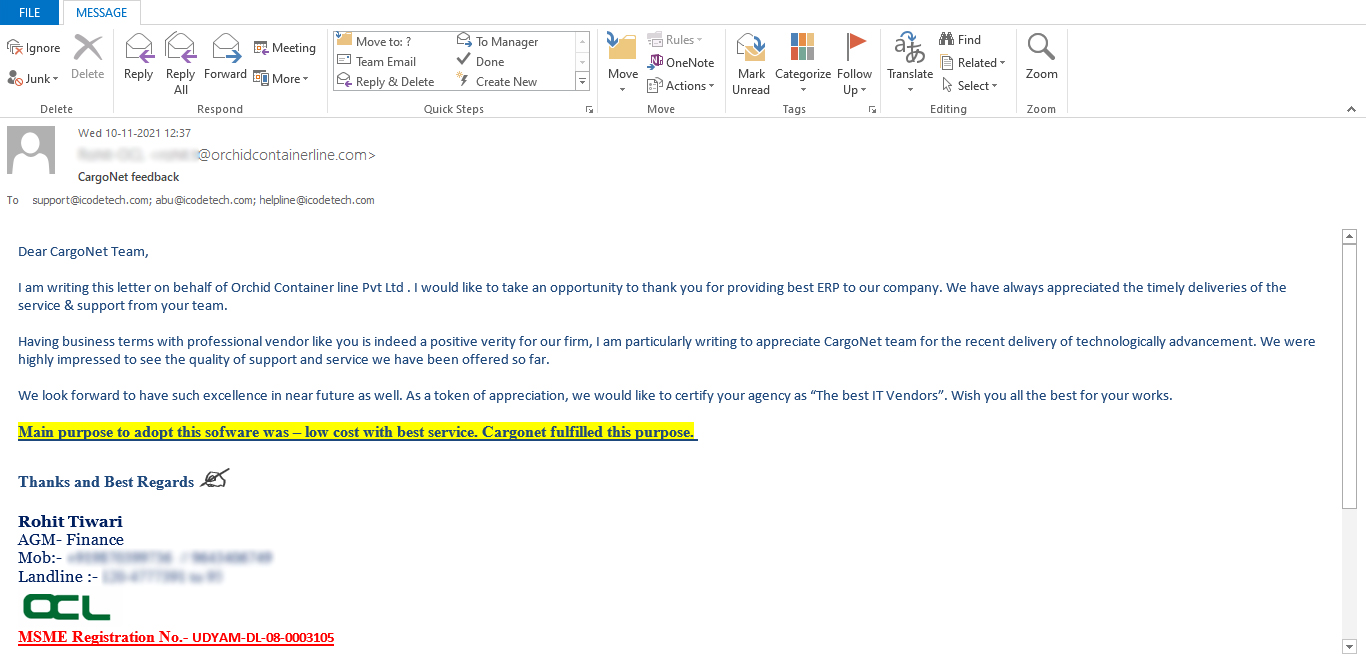
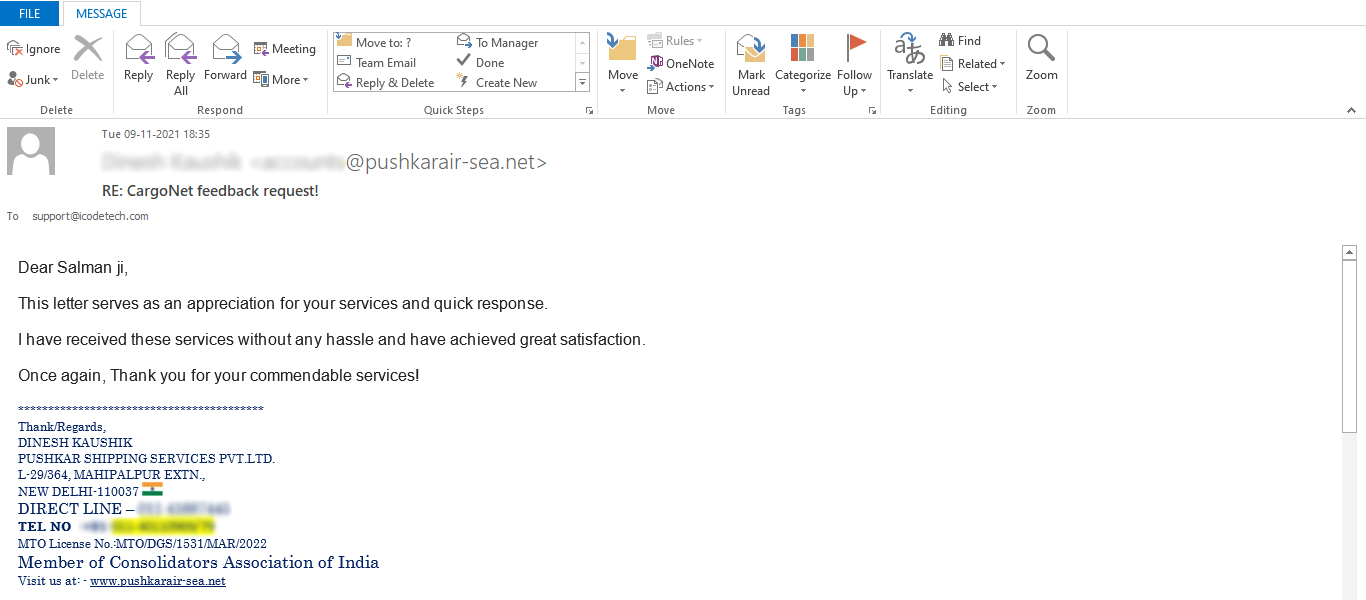
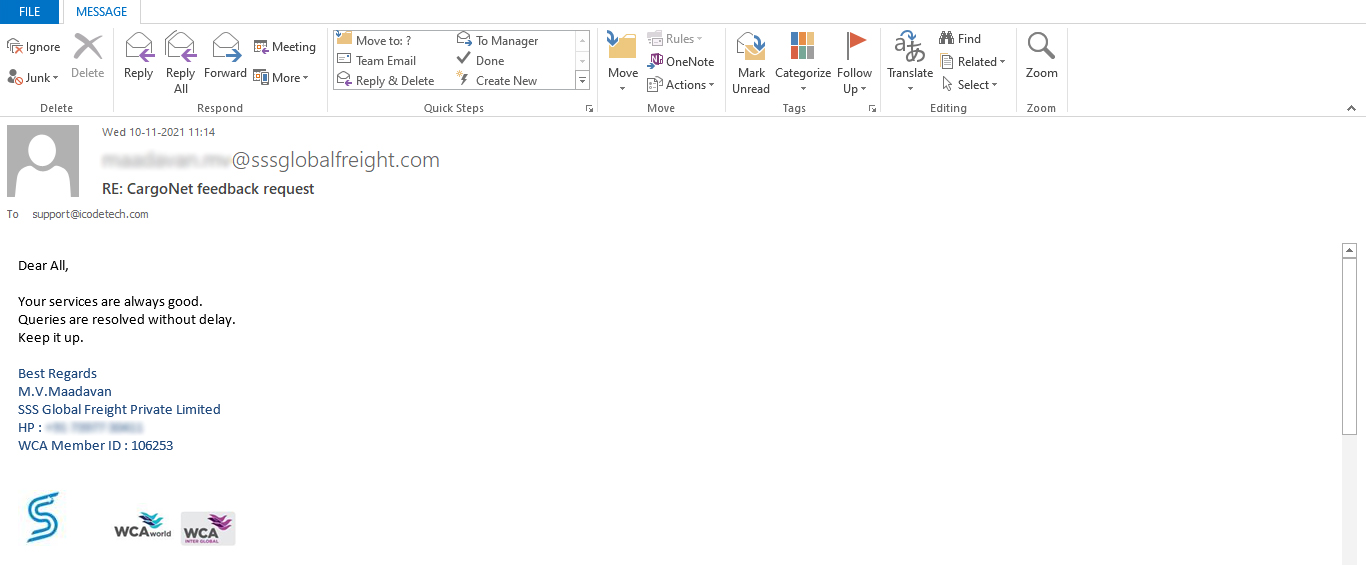
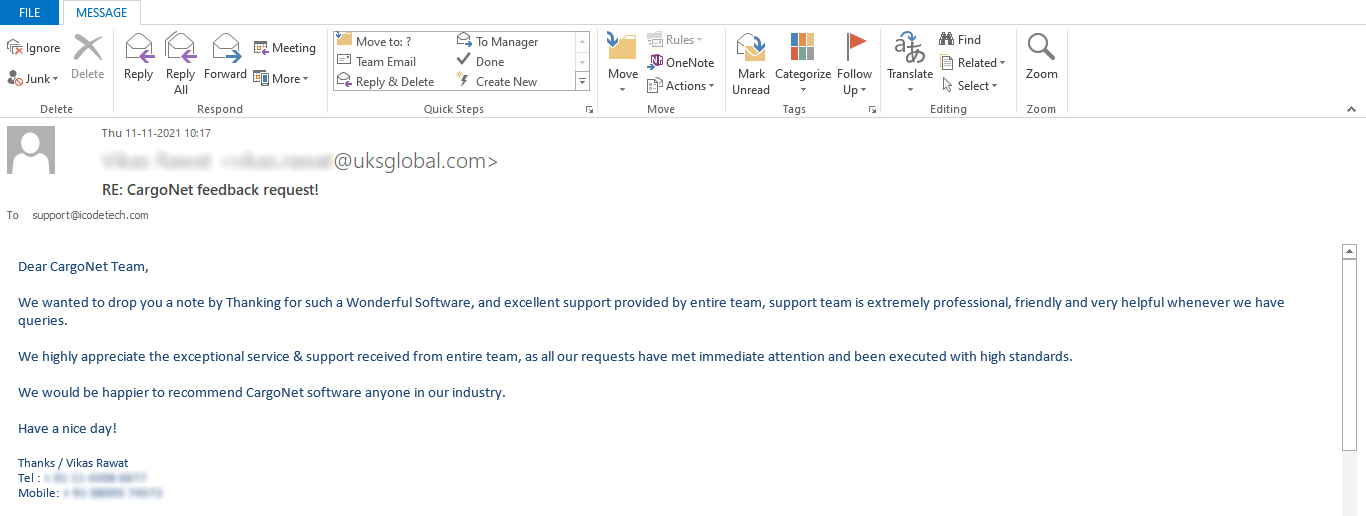
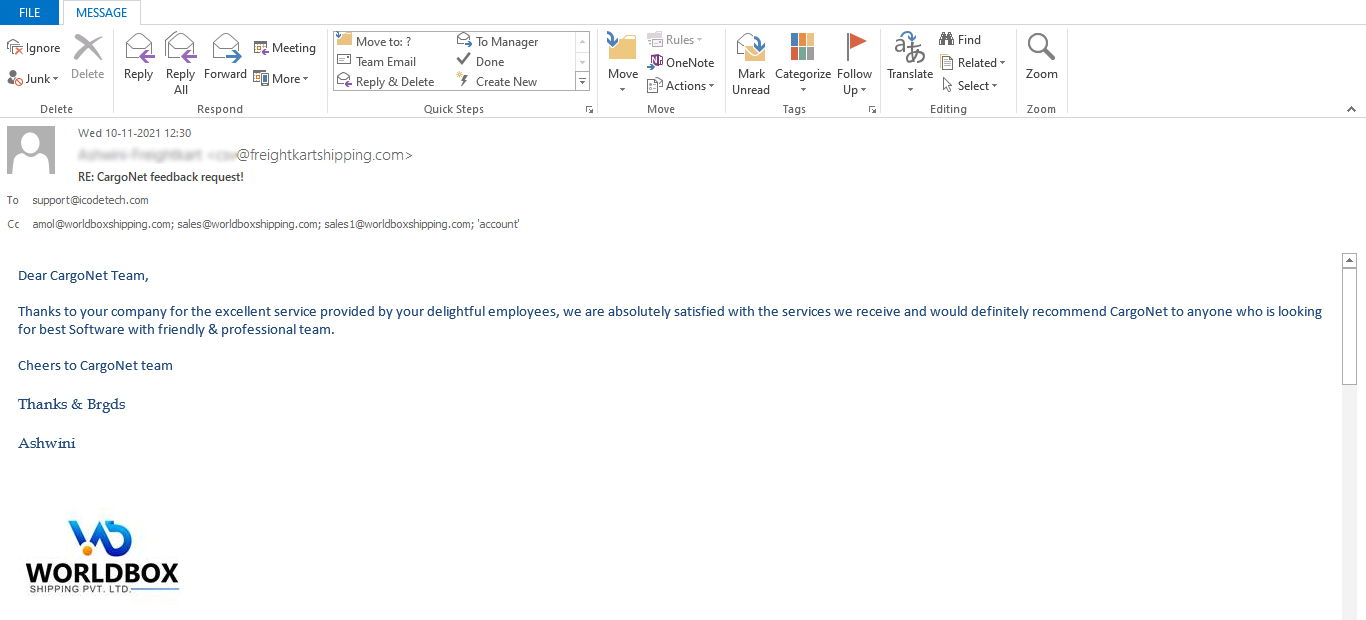
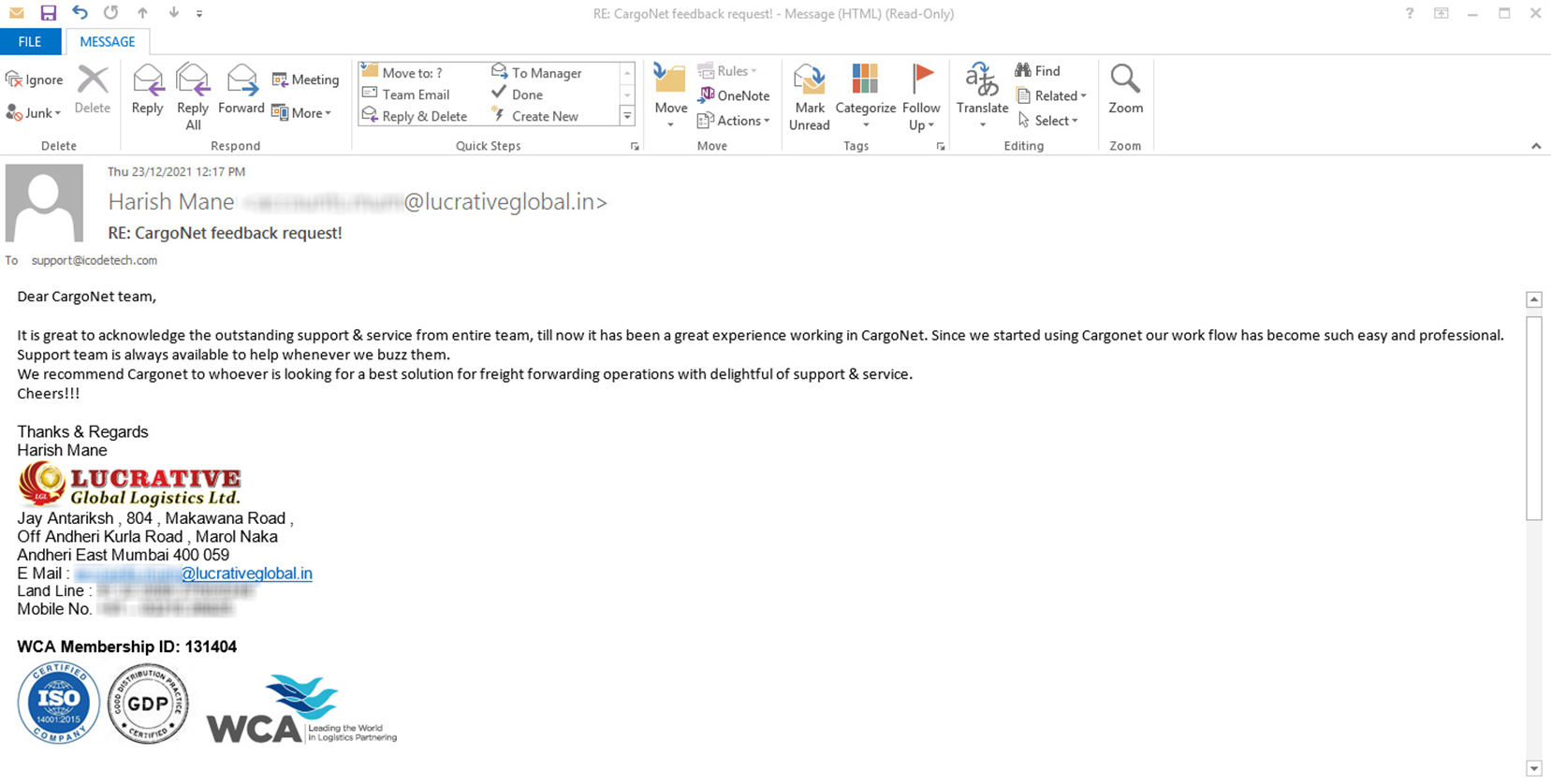

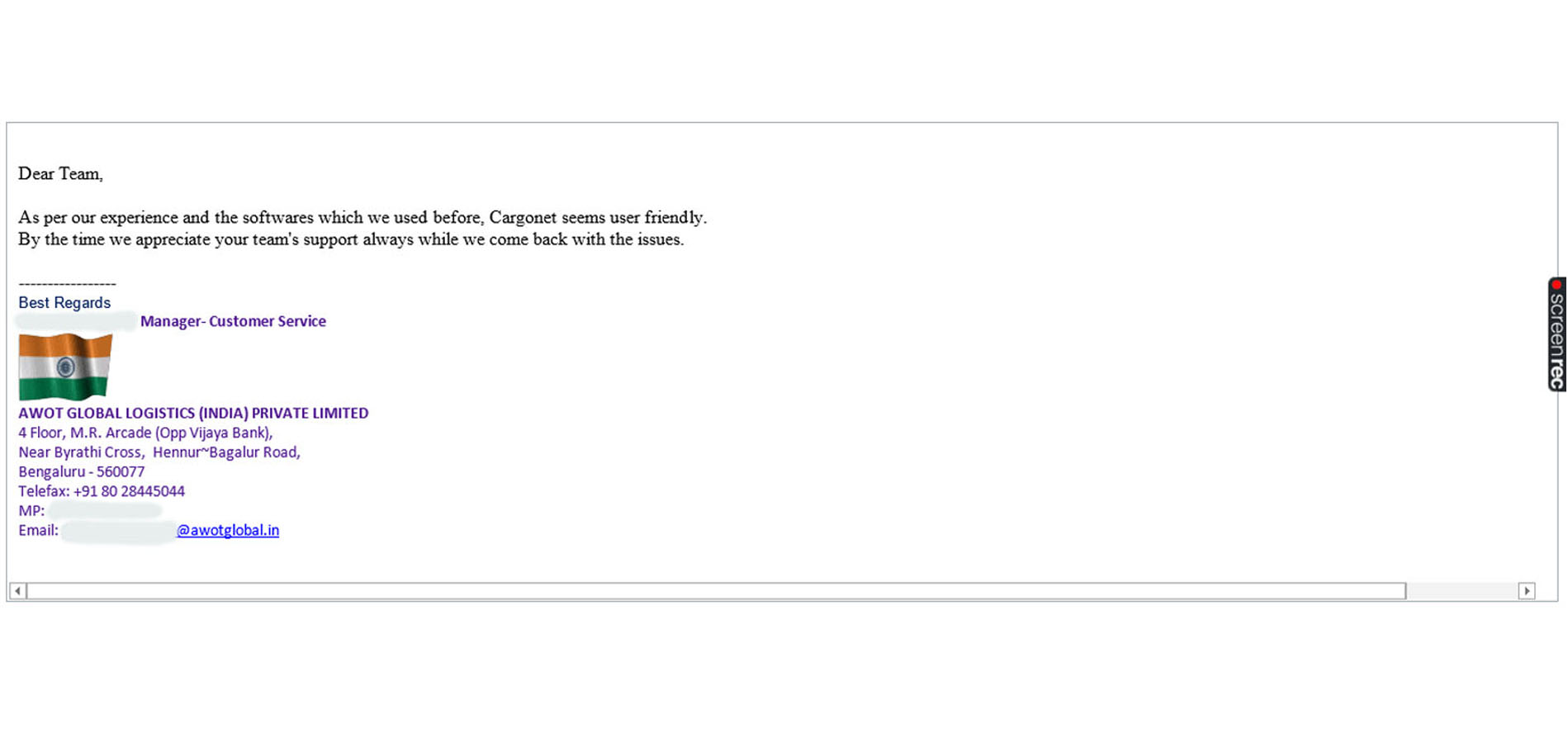

Share your information for instant access :